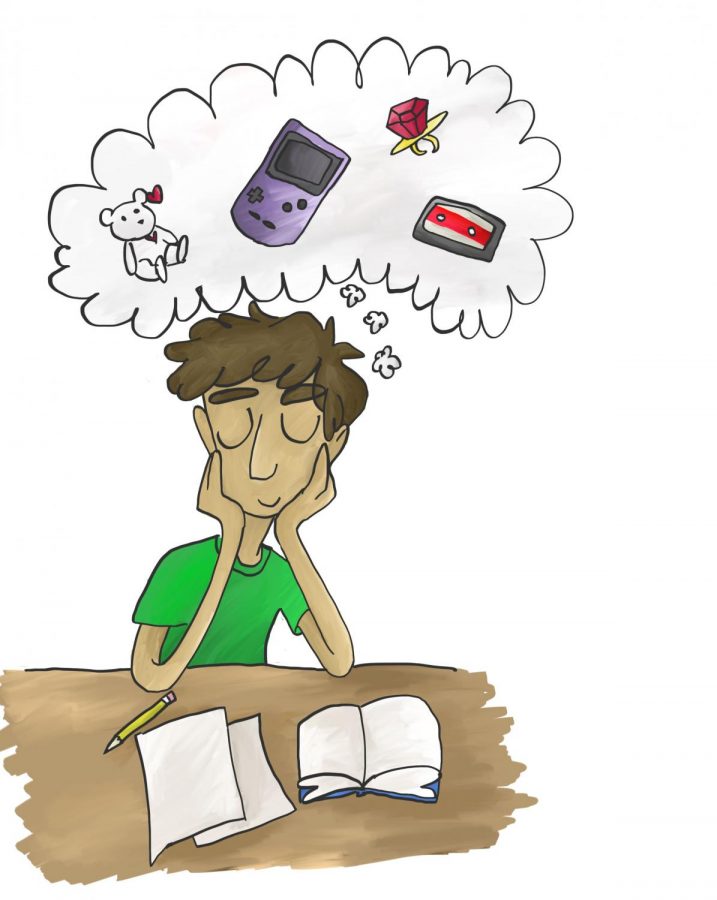Thinking of the past may help brain in the present
Cornell Study
November 3, 2014
New research published Oct. 23 by Cornell University researchers reveals that mental activities such as mind-wandering, which include day dreaming and reminiscing, can boost brain performance on challenging mental tasks.
Researchers recruited 36 young adults and asked them to view sets of famous and anonymous faces in sequence.
They were then asked to identify whether the current face matched the one presented two faces prior.The results showed that participants were faster and more accurate when matching famous faces than when matching anonymous faces and that the improved short-term memory performance was associated with greater activity in the default network of the brain, according to the study.
Nathan Spreng, lead author of the study and assistant professor in the Department of Human Development at Cornell, said participants easily recognized famous faces because they were more familiar with them.
“Famous faces activate long-term memory representation,” Spreng said.“We have prior knowledge of that [person]. We might know the person’s name. We might have a certain feeling about them. We may remember the last movie that they were in that we saw. The network of the brain [that] is activated during mind-wandering—it’s actually more of a memory network that carries our long-term representations.”
The new research is groundbreaking because it is the first time that engaging brain areas linked to “off-task” mental activities have been shown to boost brain performance.
Spreng said although there is evidence that counters his findings, the formula for those studies differs from his own.
“There is a huge amount of evidence suggesting that when people mind-wander on a task, it elicits activation of this network, called the default network, and it impairs performance,” Spreng said. “The most substantial difference between my study and those other ones [is that] those studies rely upon a series of stimuli that are devoid of any personal meaning or relevance [to the subjects].”
Spreng said his study gave the participants something to focus on that was interesting to them, which he said was key.
“What we did was instead of stimuli, we used famous faces as well as anonymous faces and people were performing a standard working memory task on the faces,” Spreng said.
The default network is the network that is most active when the brain is at rest, and when the brain is directed toward a task or goal, the default network deactivates, according to Neurology.com.
However, the results of the study show how externally and internallyfocused neural networks can interact to facilitate complex thought, according to Spreng.
Elizabeth DuPre, a graduate student at Cornell who worked on the study, said the networks of the brain do not have to be at odds.
“You can use both neural networks in support of accomplishing a goal, depending on what the goal is,” DuPre said. “[The networks] don’t have to be in opposition. They can really work together.”
DuPre said seeing how the default network could help improve short-term memory functions was one of the more important aspects of the experiment.
The default network is involved in these longer-term memory representations and the executive network is involved in the short-term memory task.
The default network carries long-term memory representations that can be recruited by the executive network to make better predictions within the short-term memory, according to DuPre.
While mind-wandering and reminiscing are often viewed in a negative light, DuPre said she hopes those views will soon be considered on a case-by-case basis.
“The main thing is that we have this association that at all times mind-wandering can be negative,” DuPre said. “It certainly is in many, many contexts, like if you are in a lecture hall taking notes. If you are mind- wandering, you are not going to take notes as well. But there are some cases where mind-wandering can actually improve your performance. If you are in a task that requires a little more creativity, you can call upon these representations that you have to improve your performance within the task.”
Rami Gabriel, an associate professor of psychology in the Humanities, History & Social Sciences Department, said although the study is valid, it is very similar to recent research suggesting that the unconscious mind is simply somewhat better equipped to handle certain mental tasks.
“People sometimes are better at tasks if they are not paying attention,” Gabriel said. “That is because the unconscious processes are actually more appropriate for that task. If you just let the unconscious [mind] do its thing, it will do better than if reflection is needed.”








